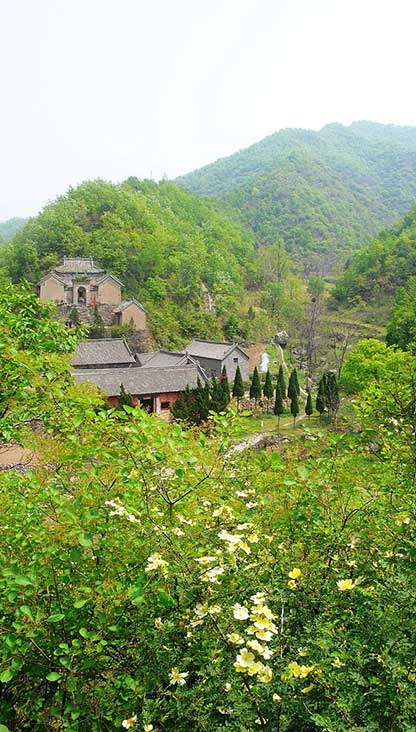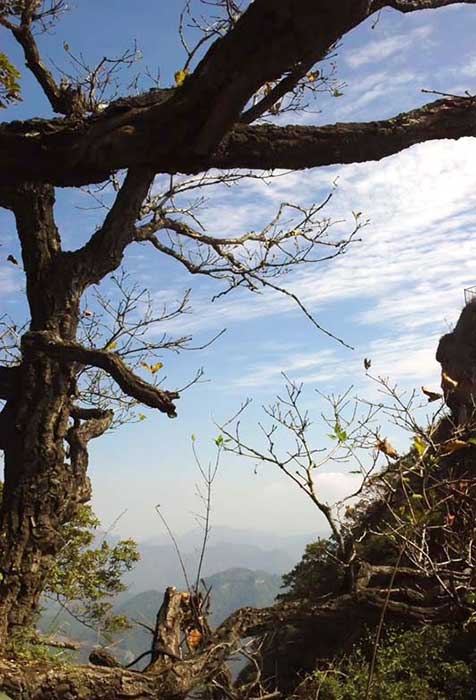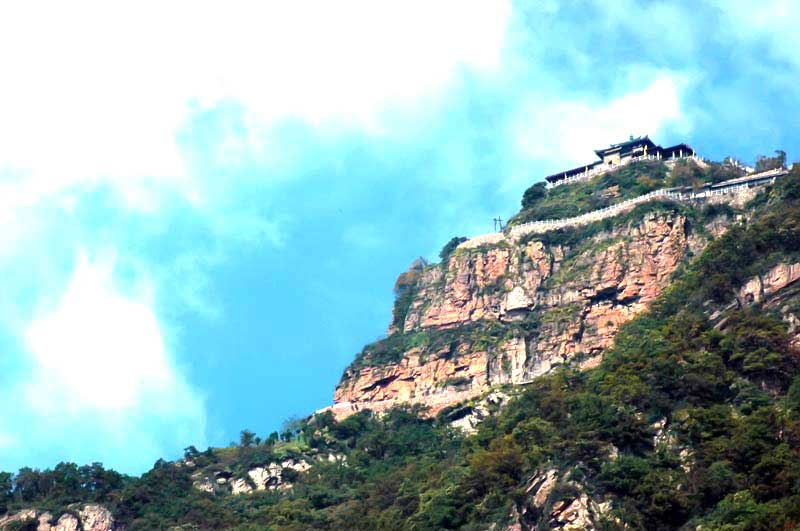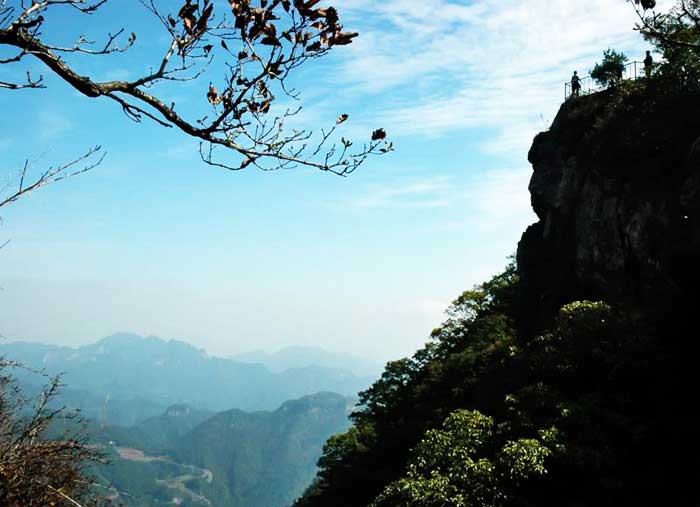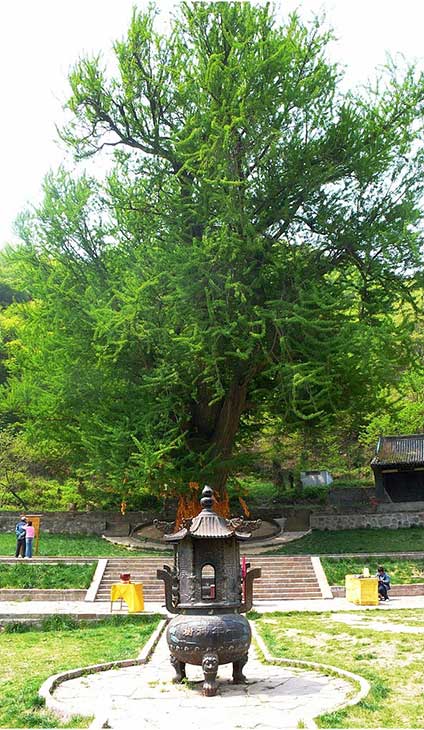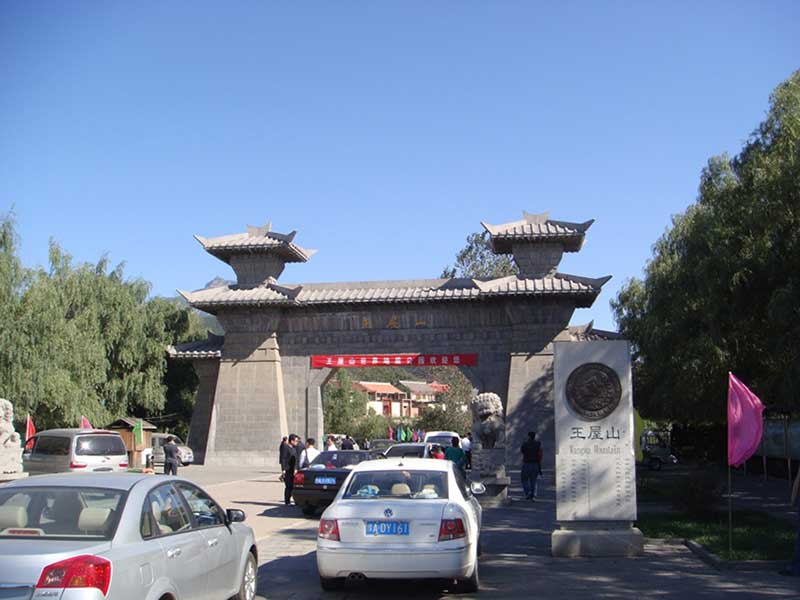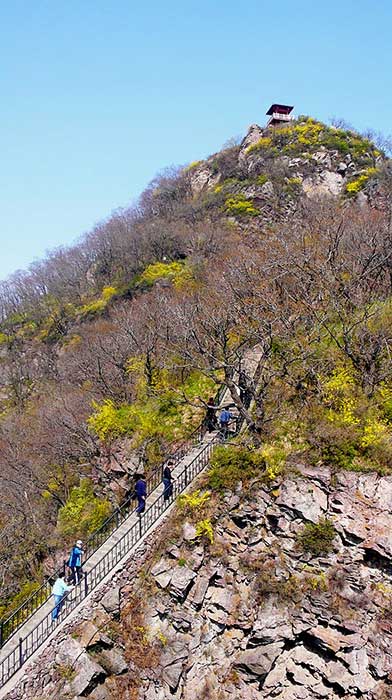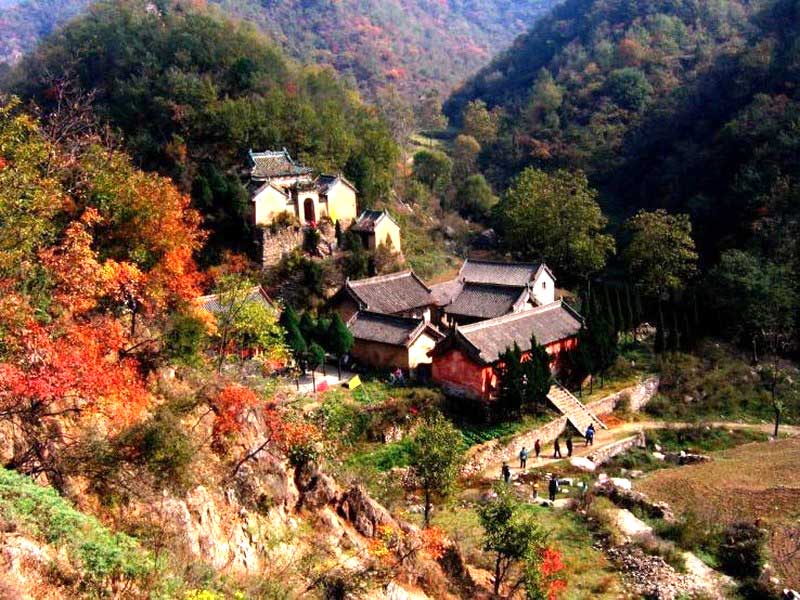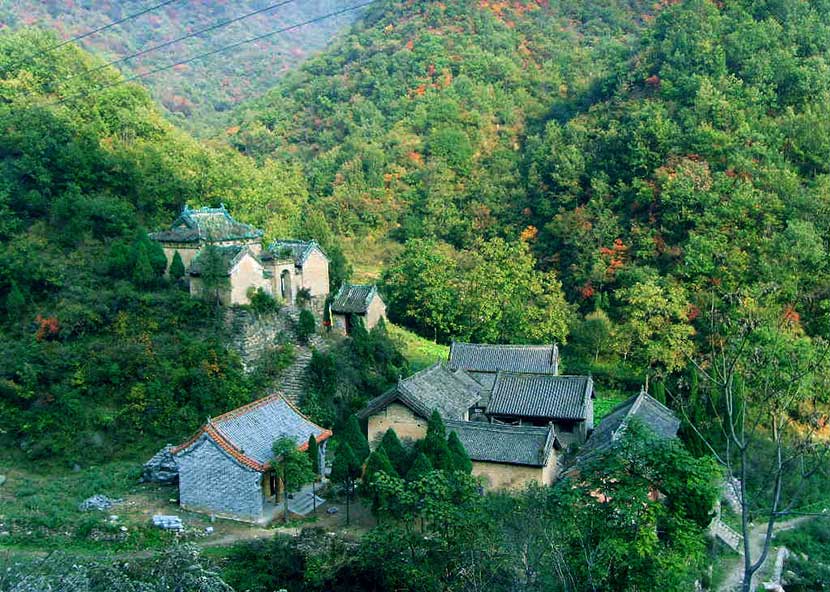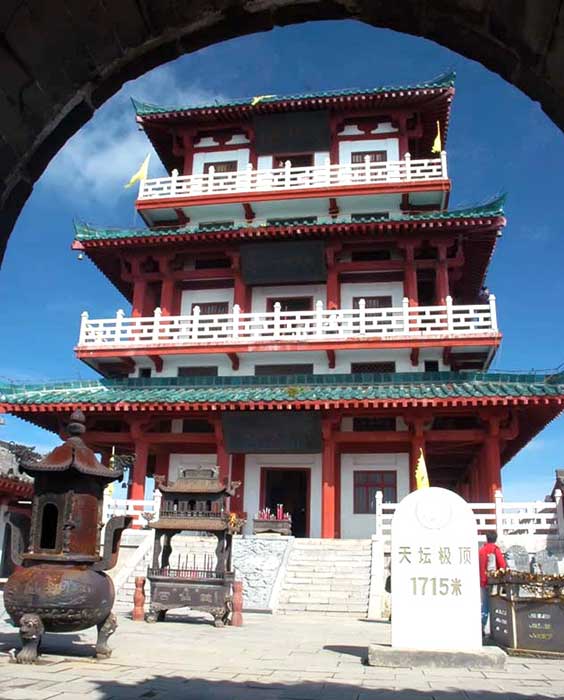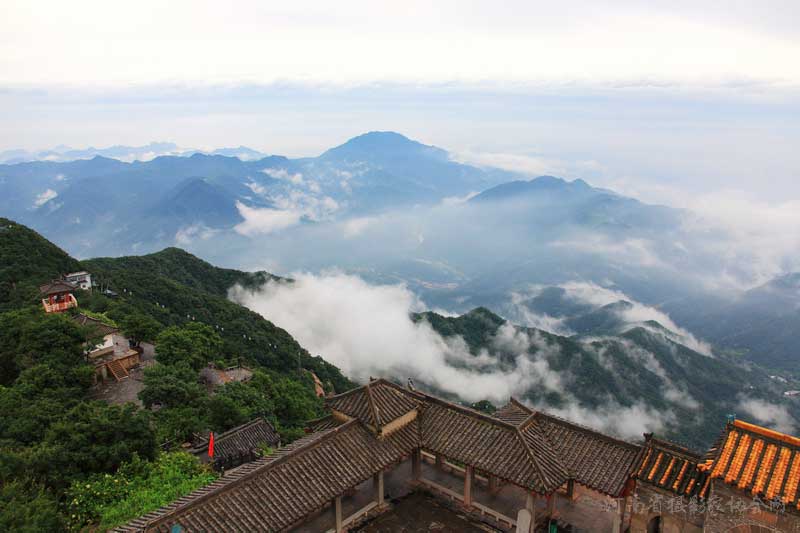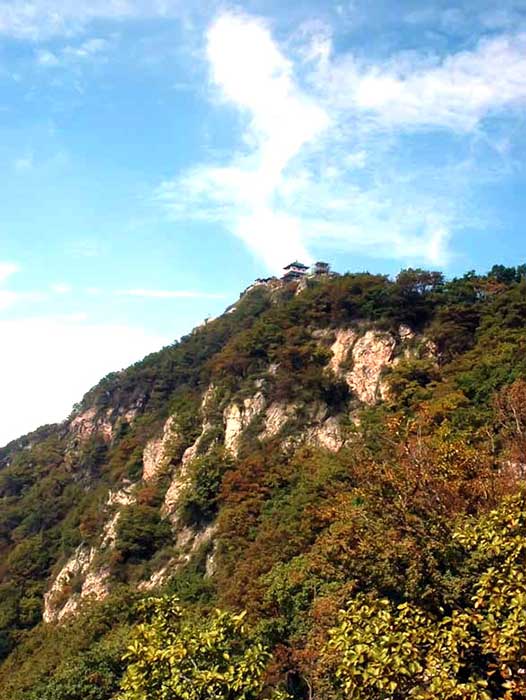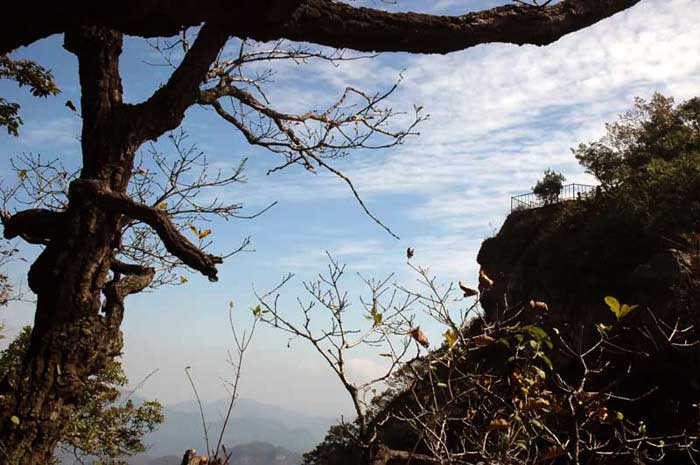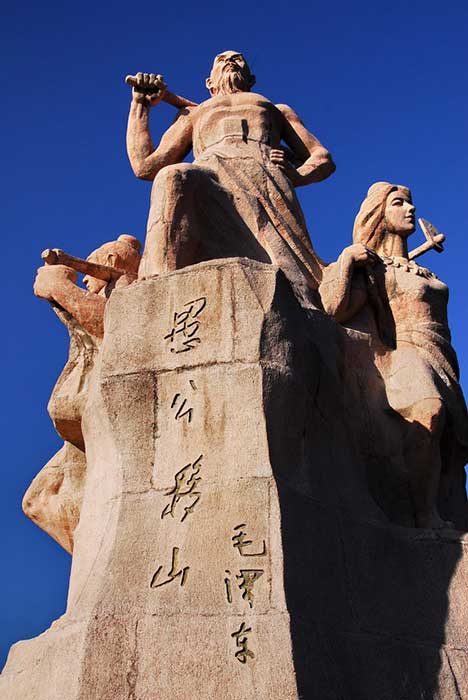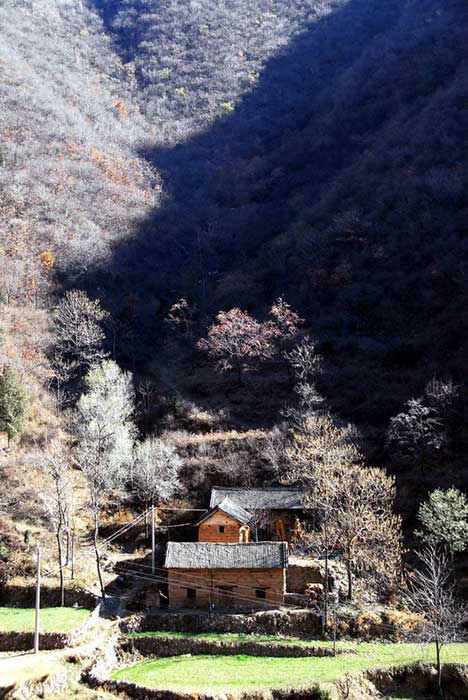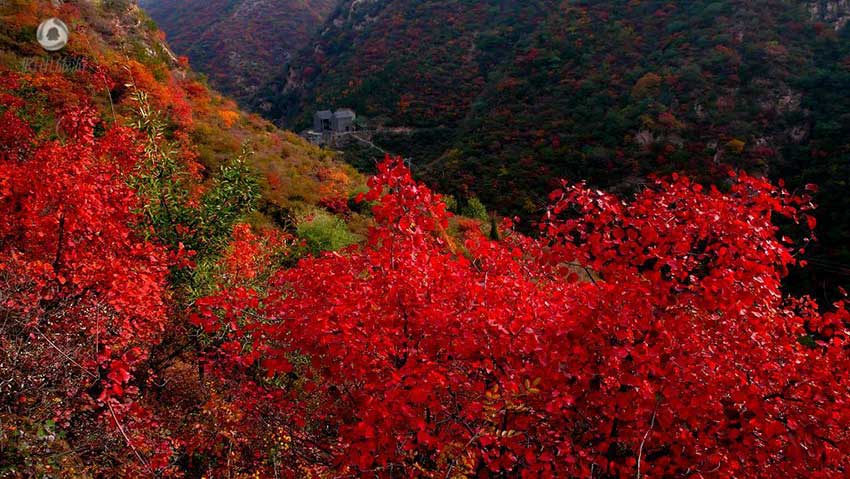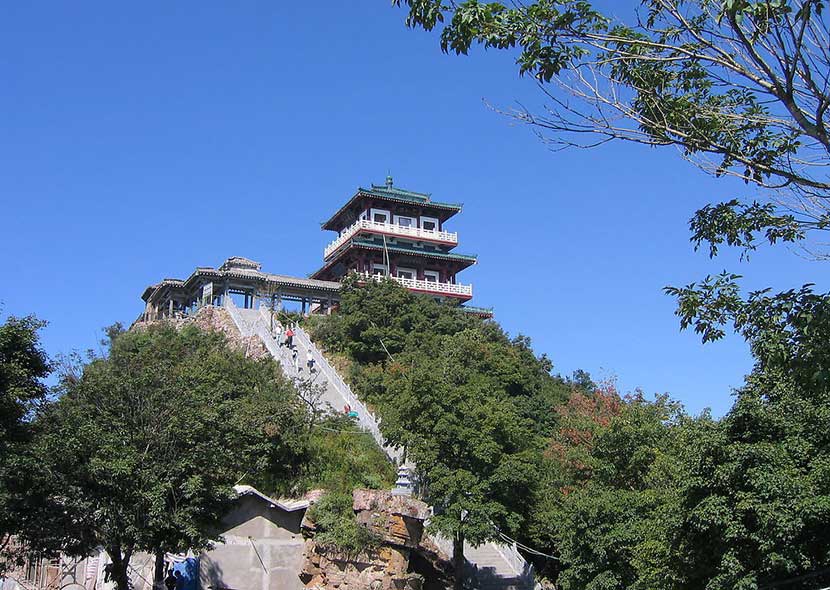Mount Wangwu - Wangwu Mountain
Mount Wangwu is about 35 km west of Jiyuan city, Henan Province, and on the Henan-Shanxi border about 50 km north of Luoyang (a capital in ancient China). It gained special prominence within Shanqing Taoism, which made it the domain of Lord Wang of the Western Citadel (XiCheng Wangjun). Numerous Shangqing scriptures and methods are said to have been revealed or secreted on Mount Wangwu. There are mountain peaks and ridges in verdure attire, spring water and waterfall running all year long, as well as old trees, monster stones, temples dotted here and there featuring humanistic characters. The well-known story of “Yugong Removed Mountain” took place here.
Mount Wangwu is one of nine Taoism ancient mountains, and once was listed first among the ten Taoism Grotto-Heaven in Han & Wei Dynasty with the title of “The first Grotto-Heaven under Heaven”. The main peak, Celestial Altar, with the elevation of 1715 meters, is the place where the Chinese ancestor Yellow emperor established altars to worship Heaven. Therefore it gained the name “Ridge of the Taihang Mountains” and “Ground pillar Propping up the sky”. It is a place where nature and human culture — thousands of years’ culture legacy and the flourishing Taoism — in well combination.
Mount Wangwu is the Taoist Holy Land in the Taoism. In the history, the place attracted many famous Taoists to come and practice Taoist alchemy here. With their joint efforts, the Yangtai Palace, Ziwei Palace, Qingxu Palace, Shifang Monastery, Lingdu Taoist Temple and other Taoist temples were built up one after another, making Mount Wangwu the Taoism activity center for a while in ancient China. Due to its proximity to the capital and the prominence of the Shangqing lineage, Mount Wangwu became a focus of imperial attention during the Tang dynasty. It was a site for imperial rites of “casting the dragons” as well imperially sponsored Taoist establishments. The local god of Mount Wangwu aided in quelling the An Lushan and Sji Siming uprisings (755-763) and was ennobled by Tang Xuanzong (712 -756) as Celestial King of the Numina and Spirits (Zongling mingshen tianwang)
Among the important establishments on the mountain was the Yangtai guan (Abbey of the Yang Platform), the residence of Sima Cheng-zheng (646-735). Repaired at the order of Tang Xuangzong in 725, it was the site for a Golden Register Retreat in 735, performed by Princess Jade Perfected, daughter of Tang Ruizong (684-710), who is said to have studied here before her Taoist initiation in 711.
Du Guangting’s preface to Tiantan Wangwu shan shengji ji (Records of Traces of the Saints on Mount Wangwu, the Celestial Altar) provides a Taoist view of the history and geography of the mountain. The main peak, named Celestial Alter, is the locus for regular assemblies of transcendent officials of all the mountains and Grotto-Heavens who examine and judge the students of the Dao. This was also the site for the Yellow Emperor’s encounter with the Queen Mother of the West, whose envoys, the Mysterious Woman and Azure Lad, presented him with estoteric device to repel the demon Chiyou.
The full name of Yangtai Palace is Dayangtai Wanshou Palace. It was first built in the Tang Dynasty (618-907) and rebuilt in the Ming Dynasty (1368-1644). Main buildings include the Sanqing Main Hall and Yuhuang Pavilion. It is said that Ying’en Palace was established by the Taoists in the early Tang Dynasty under the emperor’s decrees, hence came the name Ying’en Palace (the palace for receiving the emperor’s decrees). The palace has three parts. Leaning on the mountain and using its rocks for steps, three parts elevate one by one in a graceful order. The remaining ancient buildings include the Temple Gate, Ancestor Main Hall, Sisheng Hall, Lüzu Hall, Sanguan Hall, Leigong Hall and Yuhuang Pavilion, etc. Among them Temple Gate that was built in the period of the Republic of China, other buildings were built in the Qing Dynasty (1644-1911). The mainstay building Yuhuang Pavilion has a glazed arch ceiling with nine ridges made of bricks tiles.
OPENING HOURS
| Week Days | 8:00 – 5:00 |
| Saturday | 9:00 – 5:00 |
| Sunday | 11:00 – 4:00 |





